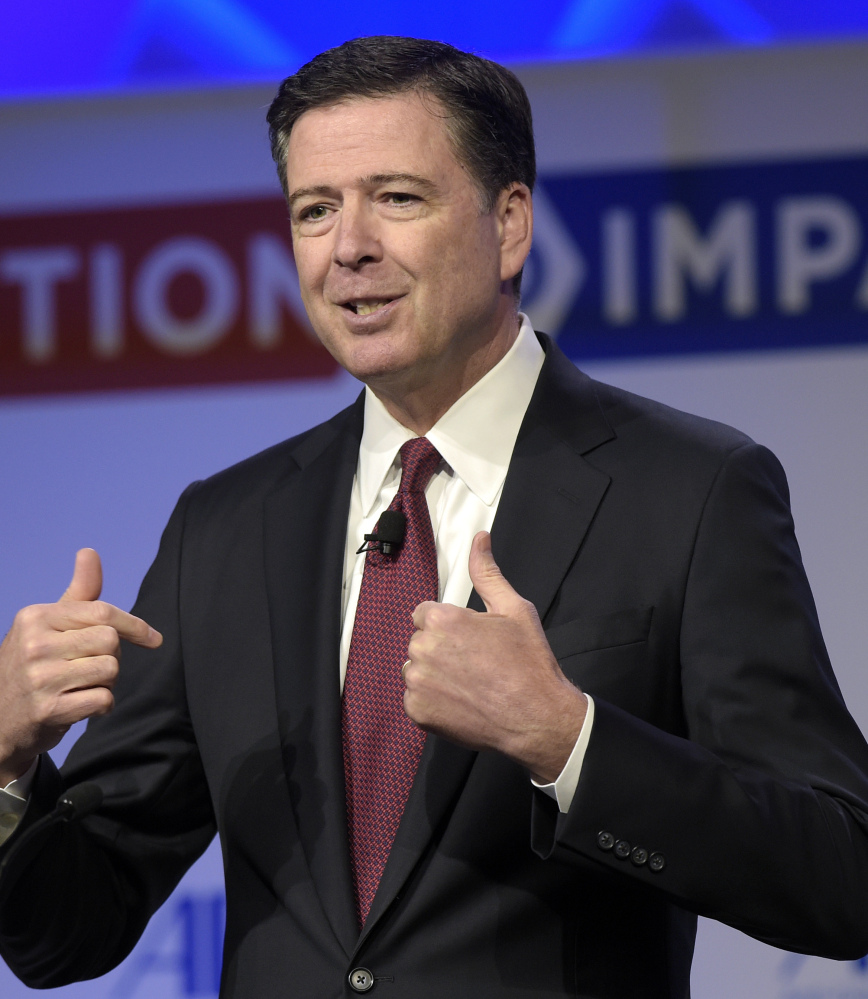A secret document that officials say played a key role in then-FBI Director James Comey’s handling of the Hillary Clinton email investigation has long been viewed within the FBI as unreliable and possibly a fake, according to people familiar with its contents.
In the midst of the 2016 presidential primary season, the FBI received what was described as a Russian intelligence document claiming a tacit understanding between the Clinton campaign and the Justice Department over the inquiry into whether she intentionally revealed classified information through her use of a private email server.
The Russian document cited a supposed email describing how then-Attorney General Loretta Lynch had privately assured someone in the Clinton campaign that the email investigation would not push too deeply into the matter. If true, the revelation of such an understanding would have undermined the integrity of the FBI’s investigation.
Current and former officials have said that Comey relied on the document in making his July decision to announce on his own, without Justice Department involvement, that the investigation was over. That public announcement – in which he criticized Clinton and made extensive comments about the evidence – set in motion a chain of other FBI moves that Democrats now say helped Trump win the presidential election.
But according to the FBI’s own assessment, the document was bad intelligence – and according to people familiar with its contents, possibly even a fake sent to confuse the bureau. The Americans mentioned in the Russian document insist they do not know each other, do not speak to each other and never had any conversations remotely like the ones described in the document. Investigators long doubted its veracity, and by August the FBI concluded it was unreliable.
The document, obtained by the FBI, was a piece of purported analysis by Russian intelligence, the people said. It referred to an email supposedly written by the then-chair of the Democratic National Committee, Rep. Debbie Wasserman Schultz, D-Fla., and sent to Leonard Benardo, an official with the Open Society Foundations, an organization founded by billionaire George Soros and dedicated to promoting democracy.
The Russian document did not contain a copy of the email, but it described some of the contents of the purported message.
In the supposed email, Wasserman Schultz claimed Lynch had been in private communication with a senior Clinton campaign staffer named Amanda Renteria during the campaign. The document indicated Lynch had told Renteria that she would not let the FBI investigation into Clinton go too far, according to people familiar with it.
Current and former officials argued the secret document gave Comey good reason to take the extraordinary step of announcing the findings of the Clinton investigation himself without Justice Department involvement.
Comey had little choice, these people said, because he feared if Lynch announced no charges against Clinton, and then the secret document leaked, the legitimacy of the entire case would be questioned.
Send questions/comments to the editors.



Comments are no longer available on this story